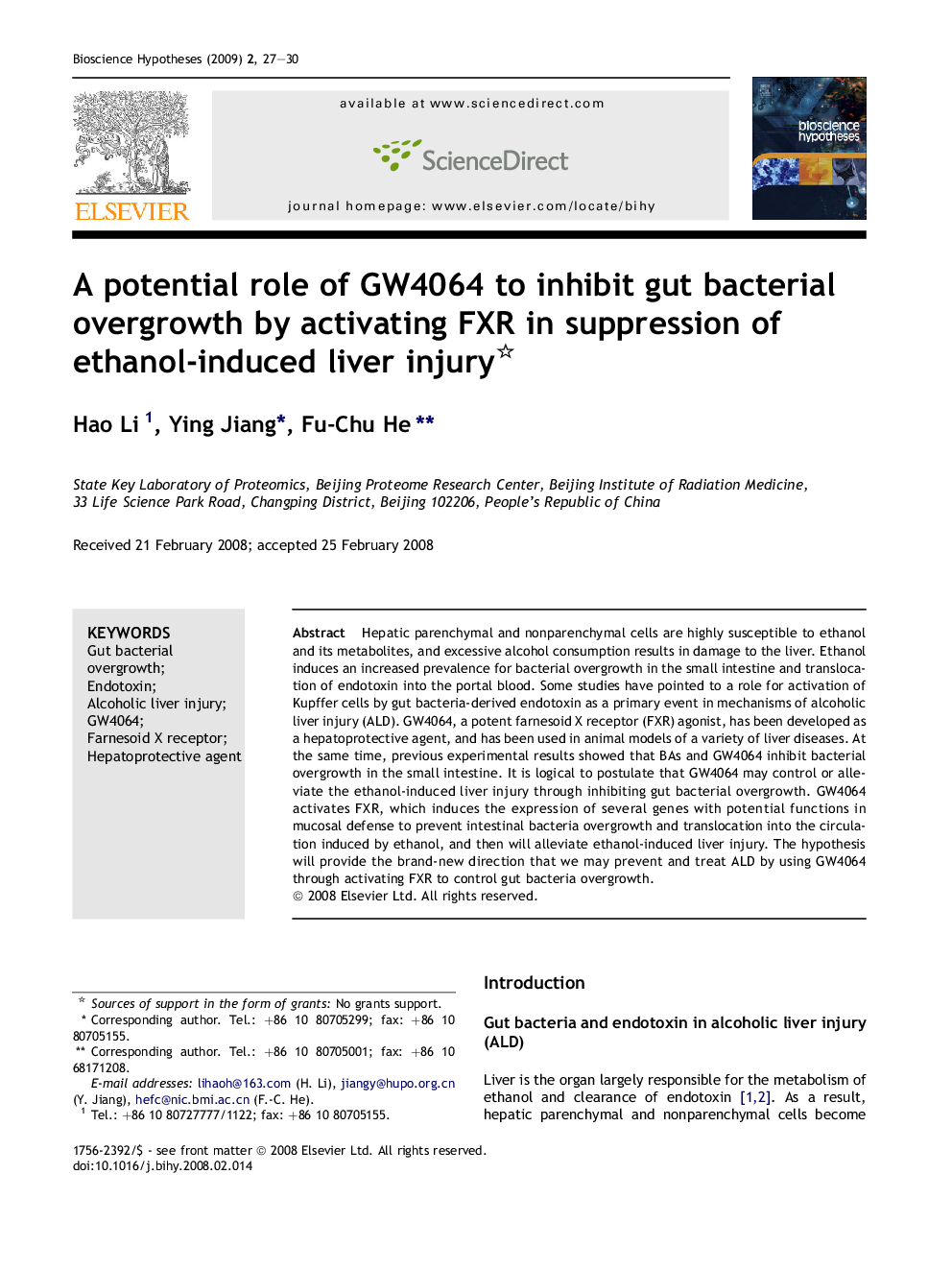| کد مقاله | کد نشریه | سال انتشار | مقاله انگلیسی | نسخه تمام متن |
|---|---|---|---|---|
| 2034819 | 1072105 | 2009 | 4 صفحه PDF | دانلود رایگان |

Hepatic parenchymal and nonparenchymal cells are highly susceptible to ethanol and its metabolites, and excessive alcohol consumption results in damage to the liver. Ethanol induces an increased prevalence for bacterial overgrowth in the small intestine and translocation of endotoxin into the portal blood. Some studies have pointed to a role for activation of Kupffer cells by gut bacteria-derived endotoxin as a primary event in mechanisms of alcoholic liver injury (ALD). GW4064, a potent farnesoid X receptor (FXR) agonist, has been developed as a hepatoprotective agent, and has been used in animal models of a variety of liver diseases. At the same time, previous experimental results showed that BAs and GW4064 inhibit bacterial overgrowth in the small intestine. It is logical to postulate that GW4064 may control or alleviate the ethanol-induced liver injury through inhibiting gut bacterial overgrowth. GW4064 activates FXR, which induces the expression of several genes with potential functions in mucosal defense to prevent intestinal bacteria overgrowth and translocation into the circulation induced by ethanol, and then will alleviate ethanol-induced liver injury. The hypothesis will provide the brand-new direction that we may prevent and treat ALD by using GW4064 through activating FXR to control gut bacteria overgrowth.
Journal: Bioscience Hypotheses - Volume 2, Issue 1, 2009, Pages 27–30